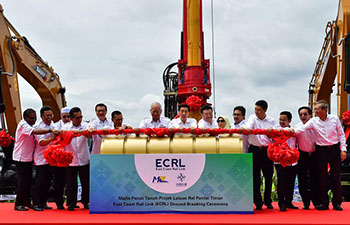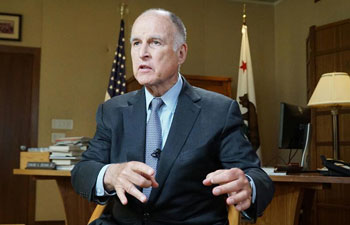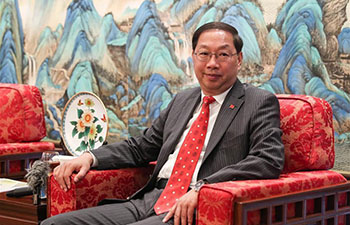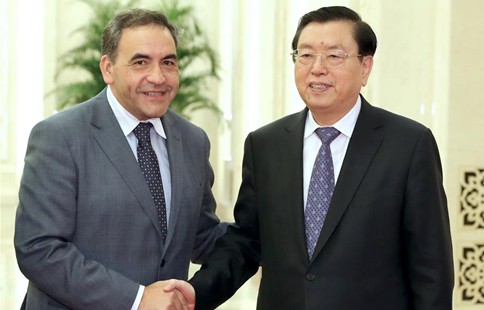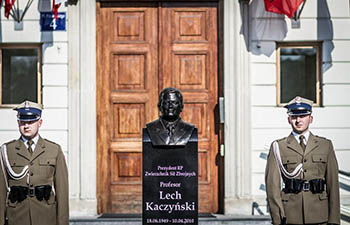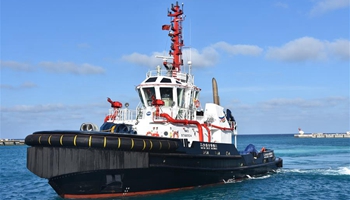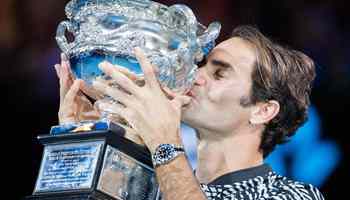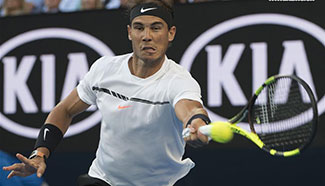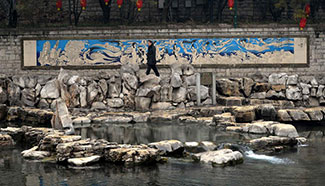By Xiang Bo
BEIJING, April 20 (Xinhuanet) --Nobel laureates in economics Michael Spence, Edmund Phelps and Joseph Stiglitz are optimistic about China’s ability to achieve its growth target in 2016, emphasizing innovation is the key driver for growth.
The three Nobel laureates made the remarks during exclusive interviews with Xinhuanet recently.
They believe that China is able to realize its growth target at between 6.5 and 7 percent in 2016 while acknowledging the uncertainty of world economy can exert great influence on China’s development. Spence said the world economy is becoming inextricably linked, indicating that no country can be completely isolated from external effects. “Having said that, I think the chances of a tough slowdown is unlikely and the growth target is realistic for China,” said Spence, adding “I would prefer it if they focus more on the quality of the growth and are more relaxed on when to achieve their income-level targets”.
For Phelps, he sees China as one of the bright spots in the current world economy. He said that a growth rate in the neighborhood of 6.5-7 percent is reasonable for China when taking into account worldwide technological transfers which can raise productivity and entrepreneurial actions to reduce production cost, plus the vast urbanization that’s going on in China.
Acknowledging that there are factors beyond forecast due to the complex nature of economy, he believed, the basic sources for productivity growth are well-understood in China and can be relied upon to continue.
Stiglitz held that whether China can achieve its growth target depends on what kind of policies China execute, indicating that global slowdown will make it difficult for China. However, “if China responds quickly to the global slowdown”, he added, “it will be possible to achieve the growth target”.
The three Nobel laureates also highlighted the role of innovation, saying they are the key driver for growth.
“The Chinese have always been a very entrepreneurial people”, said Phelps, “I have been inside companies where they are developing new products, trying them out, having some success with them. So innovation is alive and developing in China and nothing’s gonna derail it.”
Praising premier Li Keqiang’s new measures to facilitate entrepreneurs to start up, he said he has seen “a nice increase” in the number of start-up companies in the past year or two in China. “I’m also delighted to see that the banks are going to be allowed to create financial companies, it will help entrepreneurs to raise capital for innovative products,” he added.
Innovation can come in all kinds of places, Spence said, pointing to the great innovation potential in manufacturing in China to drive productivity.
Stiglitz said one of the challenges facing China is for it to get to the science and technology frontier in more areas, as investment unfortunately from the west in the area of environment has been deficient.
“Just like China was able to move to the frontier in solar panels, very quickly, because the rest of the world has not done much research, I think the same thing is true in many other areas concerning the environment,” he said.
“It’s important for China to look into what can be done in schools to inspire young Chinese to be adventurous, to embark on new ventures”, echoed Phelps to his colleague’s view. Students should be exposed to all sorts of literature that might inspire them: books of adventure, books of biography about fabulous people, novels, histories, in all languages and all countries, according to him.
“If you can introduce something that’s new and interesting, the world will, as an old expression, (make) a beaten path to your door”, said Phelps.
The three Nobel laureates came to Beijing in March to attend a high-level roundtable conference on the Role of the State in Economic Growth as part of Columbia University President's Global Innovation Fund, in collaboration with the Columbia SIPA, Columbia Global Centers of Beijing, Initiative for Policy Dialogue, and Tsinghua University.



